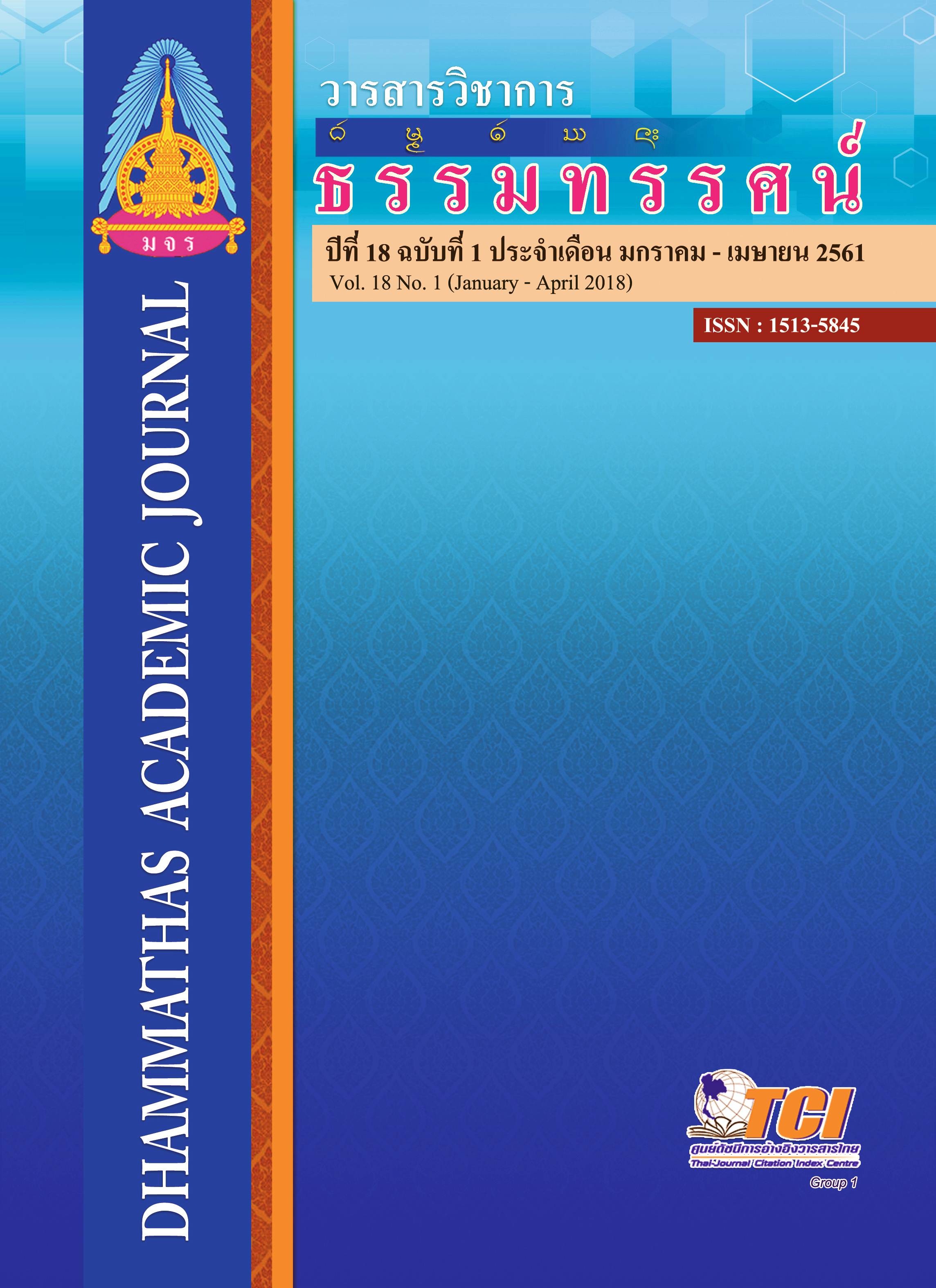A Process of Strengthening the Conscience of five Precepts to youth in School, Chiang Mai Province
Main Article Content
Abstract
This research aimed 1) study of conscience of five precepts of teenagers studying Chiang Mai’s school, 2) to develop and test of the encouragement of conscience of the five precepts according to the correspond model and 3) to analysis the process and outcome of goodness conscience encouragement process of the five virtues of the youth in the school of Chiang Mai. This research has applied the Mixed Method based on the Quantitative research by employing the questionnaire for the groups of 30 students of Wat Weruwan in Chiang Mai for both before and after training and also employed the qualitative research collecting data by way of in-depth interviews for the director and teachers of Weruwan school, Sarapee district, Chiang Mai and for two days training This research aimed 1) study of conscience of five precepts of teenagers studying Chiang Mai’s school, 2) to develop and test of the encouragement of conscience of the five precepts according to the correspond model and 3) to analysis the process and outcome of goodness conscience encouragement process of the five virtues of the youth in the school of Chiang Mai. This research has applied the Mixed Method based on the Quantitative research by employing the questionnaire for the groups of 30 students of Wat Weruwan in Chiang Mai for both before and after training and also employed the qualitative research collecting data by way of in-depth interviews for the director and teachers of Weruwan school, Sarapee district, Chiang Mai and for two days training periods by Buddhist monks studying in the faculty of Buddhism of MCU. The training process of conscience development has different method such as lecture by using media as the VCD, and Dhamma songs.
The results are summarized as follows:
1. The process of cultivating consciousness according to the Five Precepts of the youth in school of Chiang Mai province, it has organized many activities viz., the Moral Camp, Making Merit by offering food to monks on the Buddhist Holy days and listen to Dhamma, Dhamma Study for the householder in all levels -: elementary, intermediate and advanced. However, there are no projects instilled in the Five Precepts to learn and to build up the correct knowledge.
2. The development and experiment to strengthen the consciousness according to the Five Precepts through the behavioral learning approach were conducted by using the role play, group discussion, newspapers, Power Point, CD and DVD in order to encourage students to understand different perspectives and the benefit of practicing the Five Precepts through the role plays. 3. The results of cultivating the awareness of goodness based on the Five Precepts of the youth in school of Chiang Mai province, it can be analyzed from the pre and post questionnaire of the training. There were 30 students aged 14-15 who studied in the junior high school level. The study found that after the training 7 male students have a better attitude in the first precept and there were 18 students have a better attitude in the second precept and the fifth precept. However, the male students have unclear attitude in the third and the forth precept. There were 3 female students have a better attitude in the first precept, 7 students in second precept, 5 students in third precept and 7 students in the fifth precept. However, it was found an unclear attitude in forth precept. Regarding the behavior of observing and offending the Five Precepts, it was found that most students have offended the Five Precepts. Most students have learned the Five Precepts from religious activities and religious books. Beside these, they have learned from individual media such as Buddhist monks, parents followed by radios, televisions, online media (internet) and school books. In addition, they have learned the Five Precepts from activities that were organized by temples and communities viz., offering food to monks on an important Buddhist Holy days.

